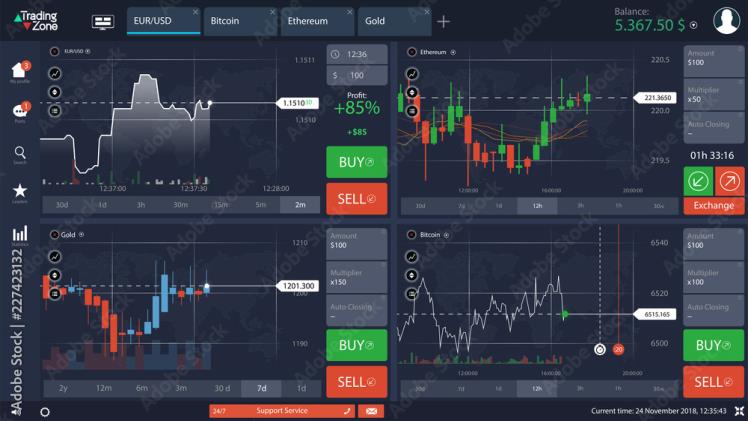Introduction
In the realm of finance, options trading offers a tantalizing opportunity for seasoned investors and novice traders alike to delve into the intricate dance of risk and reward. By delving into the fascinating world of options, individuals can harness their financial acumen to potentially amplify their gains and hedge against market volatility. However, navigating this complex landscape requires adherence to both time-honored principles and modern best practices. To empower aspiring options traders with the knowledge they need to succeed, this comprehensive guide will illuminate the dos and don’ts of this dynamic market.

Image: www.shutterstock.com
Do: Comprehend the Basics
Embarking on any financial endeavor necessitates a thorough understanding of its fundamental concepts. Before venturing into options trading, it is paramount to acquire a firm grasp of key concepts such as option types (calls and puts), strike prices, expiration dates, and underlying assets. Equally important is developing proficiency in interpreting option chains and calculating Greeks, a crucial set of metrics that quantifies various risk and reward parameters associated with an option. By laying this intellectual foundation, you empower yourself to make informed decisions in the dynamic and often volatile world of options trading.
Don’t: Trade Without a Plan
Approaching options trading with a haphazard mindset is akin to venturing into a perilous jungle without a map. To navigate the complex terrain of this market successfully, meticulous planning is essential. Prior to executing any trade, define your objectives, risk tolerance, and exit strategy. Establish clear parameters for entering and exiting positions, mitigating potential losses while maximizing profit opportunities. Remember, a well-thought-out plan serves as your guiding light, keeping you on track amidst the ebb and flow of market sentiments.
Do: Start Small
With the allure of potential gains, it’s tempting to dive headlong into options trading with sizeable sums. However, prudence dictates taking a measured approach, especially for beginners. Commencing with modest trades allows you to familiarize yourself with the mechanics of the market, test your strategies, and manage risk more effectively. As you gain experience and confidence, you can gradually increase your position sizes, always mindful of the adage, “Slow and steady wins the race.”

Image: www.sharemarket.in
Don’t: Overtrade
In the enthralling world of options trading, it’s easy to get caught up in the adrenaline rush of frequent trades. Yet, excessive trading can often lead to a detrimental cycle of diminishing returns. By exercising patience and discipline, you can avoid the pitfalls of overtrading. Allow sufficient time for market analysis, develop a sound trading plan, and stick to it diligently. Remember, quality trades, not quantity, are the key to long-term success in options trading.
Do: Manage Risk
Options trading involves inherent risk, and failing to manage it effectively can lead to significant financial losses. To safeguard your capital and preserve your trading longevity, adopt robust risk management strategies. This encompasses setting stop-loss orders, which automatically close your positions if certain predefined price levels are reached, and diversifying your portfolio across multiple underlying assets, reducing the impact of any single market downturn. By implementing these prudent measures, you create a resilient foundation for your options trading journey.
Don’t: Rely Solely on Technical Analysis
While technical analysis, the study of price charts and patterns, can provide valuable insights into market behavior, it’s crucial to avoid relying on it exclusively. The complex dynamics of options trading demand a more comprehensive approach that encompasses fundamental analysis, which delves into the intrinsic value of underlying assets, market news, and economic indicators. By combining both technical and fundamental analysis, you gain a more holistic understanding of market sentiment and increase your chances of success.
Do: Monitor the Market Continuously
The financial markets are fluid entities, constantly evolving and reacting to a multitude of factors. To stay abreast of these dynamic changes, diligent monitoring of market movements is essential. Utilize financial news outlets, trading platforms, and market analysis tools to stay informed about price fluctuations, upcoming events, and economic data releases. By keeping a watchful eye on market developments, you can make informed trading decisions and adapt to changing conditions swiftly.
Dos And Donts Of Options Trading

Image: visitmagazines.com
Don’t: Let Emotions Dictate Trades
Trading on impulse or driven by fear and greed often leads to suboptimal outcomes. In the heat of the moment, it’s easy to let emotions cloud your judgment, resulting in irrational trades. To maintain






